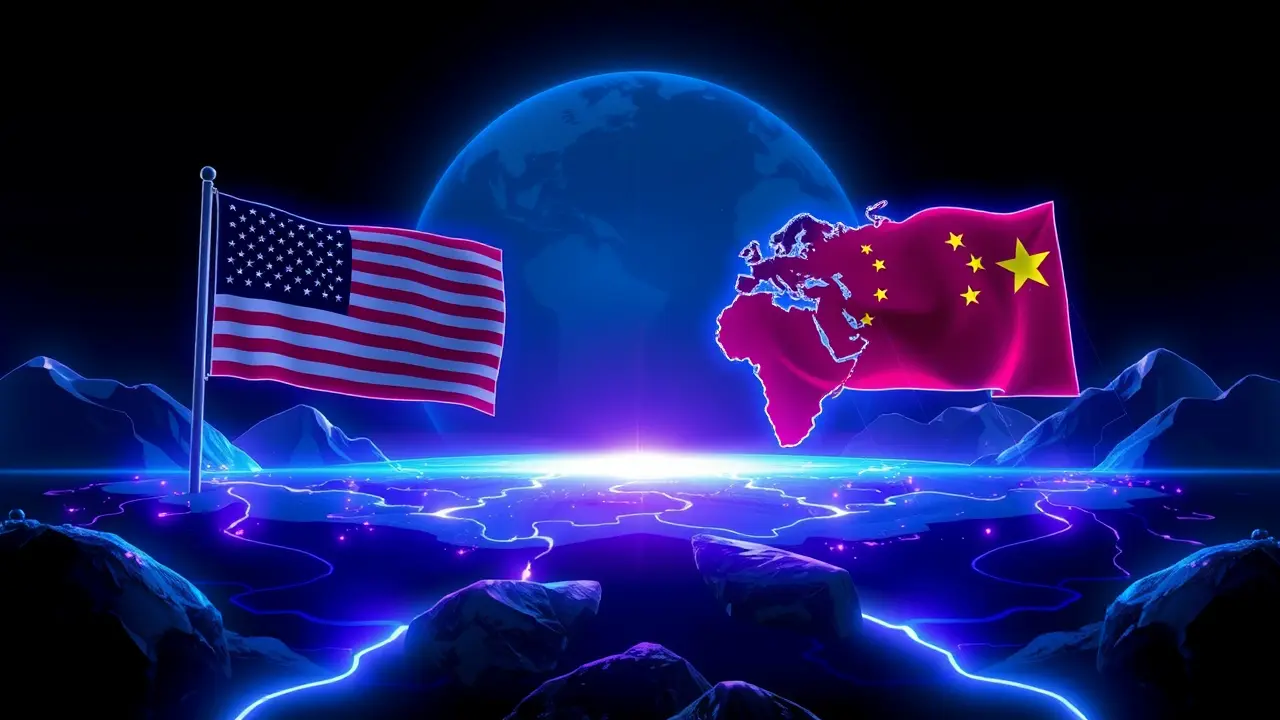
Politicssanctions & tradeTrade Deals
White House Announces US-China Deal on Rare Earth Minerals.
RO
Robert Hayes
14 hours ago7 min read
In a development with profound implications for the global balance of power, the White House has released further details regarding a landmark trade agreement forged between U. S.President Donald Trump and Chinese President Xi Jinping, a pact centered on the strategic arena of rare earth minerals. This accord, emerging from the smoldering embers of a protracted trade war that has rattled markets and redefined international alliances, represents more than a mere economic truce; it is a calculated geopolitical maneuver reminiscent of historic resource accords that have shaped the destinies of empires.Rare earth elements—those seventeen obscure metals with magnetic and phosphorescent properties indispensable to modern civilization, from the smartphones in our pockets and the electric vehicles on our roads to the sophisticated guidance systems of F-35 fighter jets and Javelin missiles—have long been the linchpin of China's strategic dominance, with the nation controlling over 80% of global refining capacity and holding a near-monopoly that has allowed it to weaponize supply chains, as starkly demonstrated during the 2010 Senkaku Islands dispute when it abruptly slashed exports to Japan. The newly unveiled deal, therefore, is not simply about tariffs or tonnage; it is a carefully negotiated détente aimed at securing a fragile but critical supply line for American industry and defense, likely involving concessions on technology transfers and investment caps from the U.S. side in exchange for guaranteed, stable exports from Chinese mines and processing facilities.Analysts are already drawing parallels to the Great Game of the 19th century, where rival powers jockeyed for control over strategic resources and trade routes, with this mineral diplomacy signaling a new, resource-centric cold war fought not with battalions but with export quotas and processing patents. The immediate consequence is a sigh of relief for Western tech giants and defense contractors who have operated under the constant shadow of a supply cutoff, yet the long-term ramifications are far more complex, potentially spurring a accelerated race for alternative sources in Mountain Pass, California, or in nascent partnerships with Australia and Canada, while simultaneously forcing a recalibration of the entire 'decoupling' narrative that has dominated U.S. -China relations.As one senior fellow at the Center for Strategic and International Studies noted, 'This is not a peace treaty; it is an armistice built on mutual necessity. China retains its leverage, but America has bought itself time and stability.The true test will be whether this arrangement holds when the next geopolitical crisis inevitably tests the fragile trust between these two competing superpowers. ' The fine print of the agreement, which is expected to include joint committees for oversight and dispute resolution, will be scrutinized by lawmakers in both Washington and Beijing, setting the stage for a new chapter in a rivalry where economic security and national security have become irrevocably fused.
#White House
#US-China trade deal
#rare earth minerals
#trade restrictions
#diplomacy
#featured
Stay Informed. Act Smarter.
Get weekly highlights, major headlines, and expert insights — then put your knowledge to work in our live prediction markets.
© 2025 Outpoll Service LTD. All rights reserved.